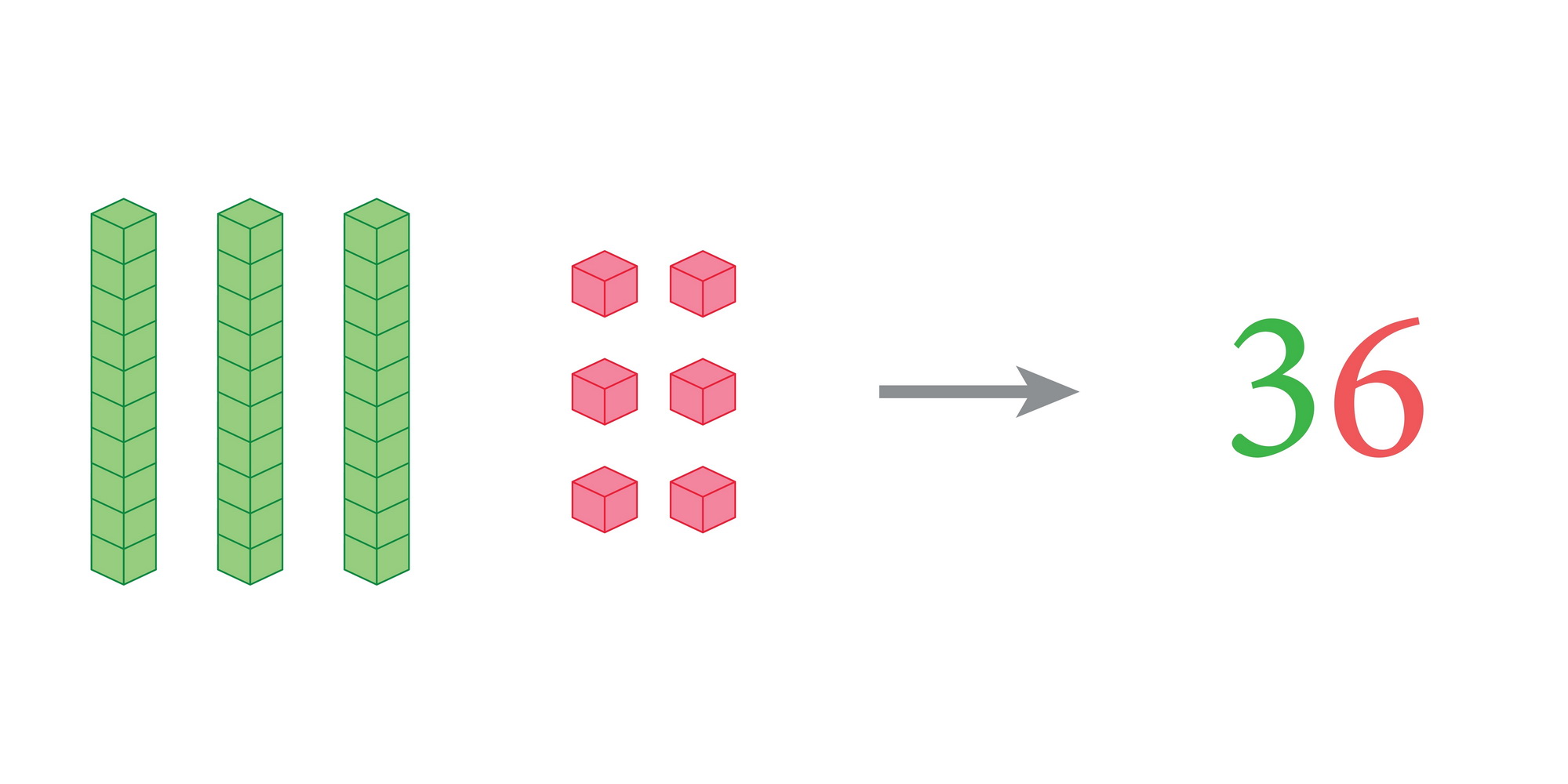Mathematical reasoning Normal Numbers Worksheets for Ages 5-8
6 filtered results
-
From - To
Explore our engaging Mathematical Reasoning Normal Numbers Worksheets designed for young learners ages 5-8! Our printable resources help children develop foundational math skills through fun activities that promote number recognition, counting, and basic mathematical operations. Each worksheet is tailored to enhance critical thinking and problem-solving abilities, ensuring that learning is both effective and enjoyable. Whether your child is starting their math journey or needs extra practice, our worksheets provide a variety of exercises to keep them motivated and eager to learn. Dive into an exciting world of numbers and watch your child's mathematical confidence grow with every worksheet!
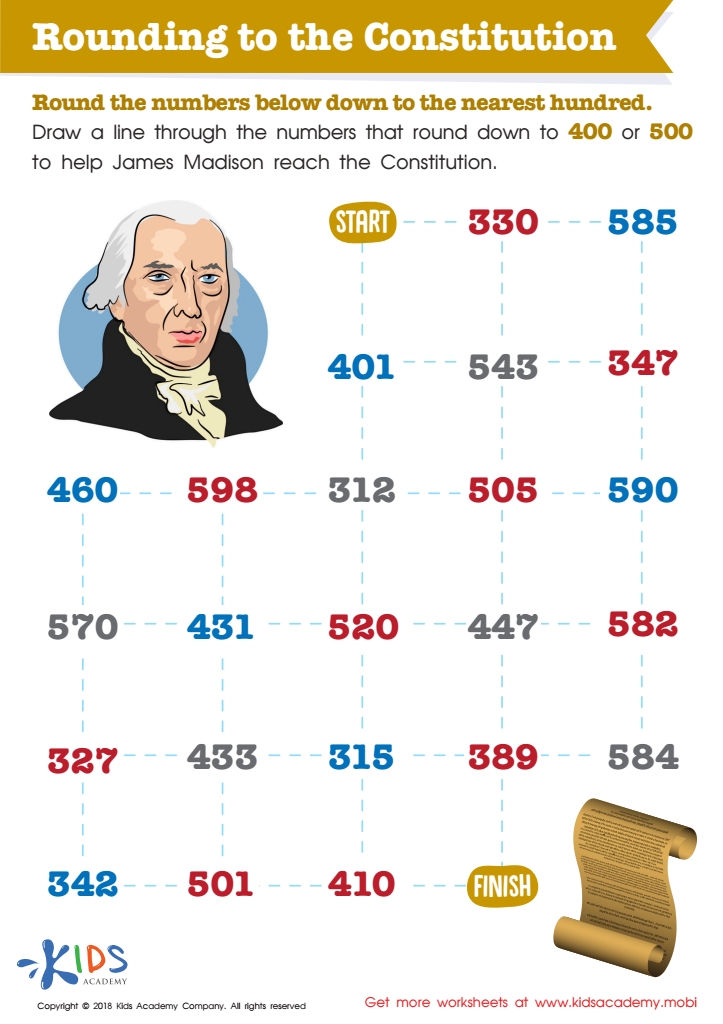

Rounding to the Constitution Worksheet
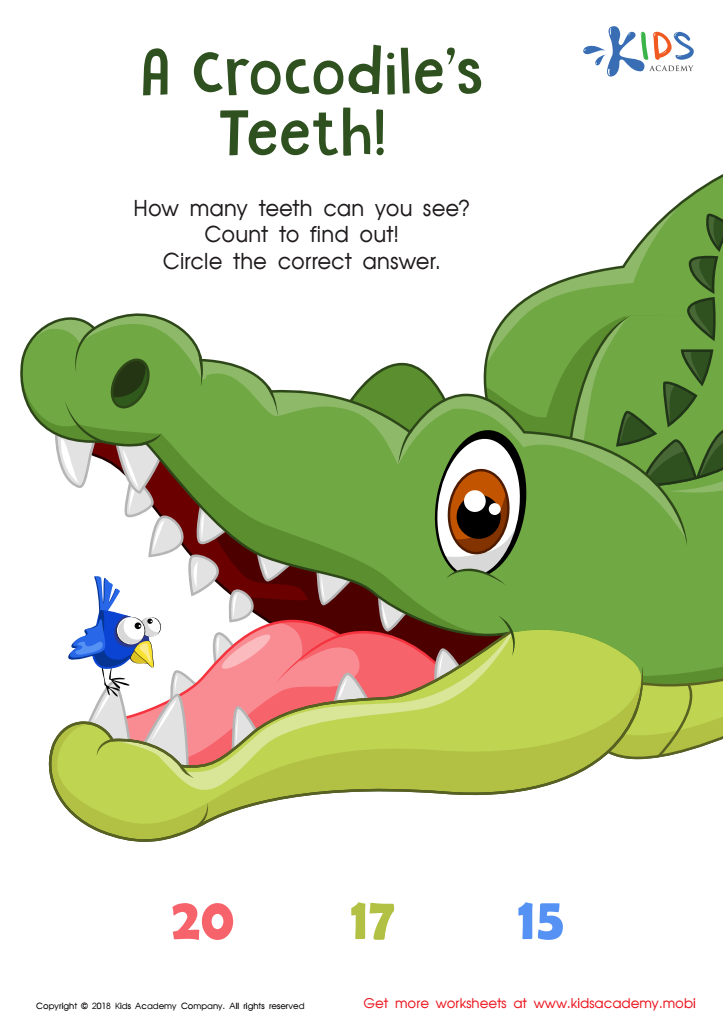

A Crocodile's Teeth Worksheet
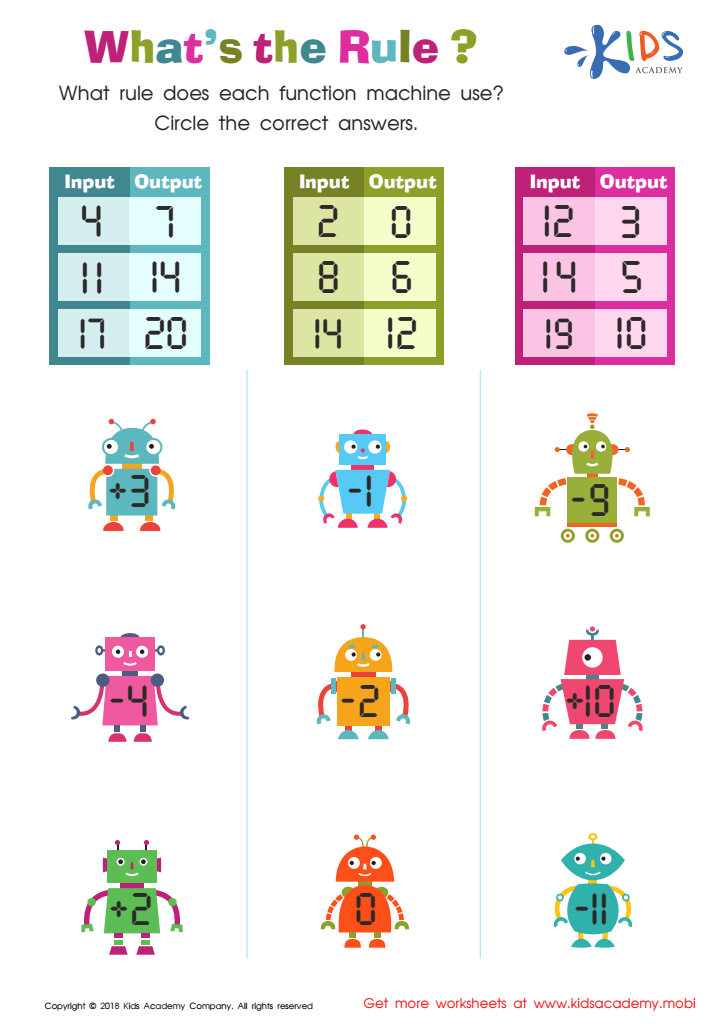

What's the Rule Worksheet
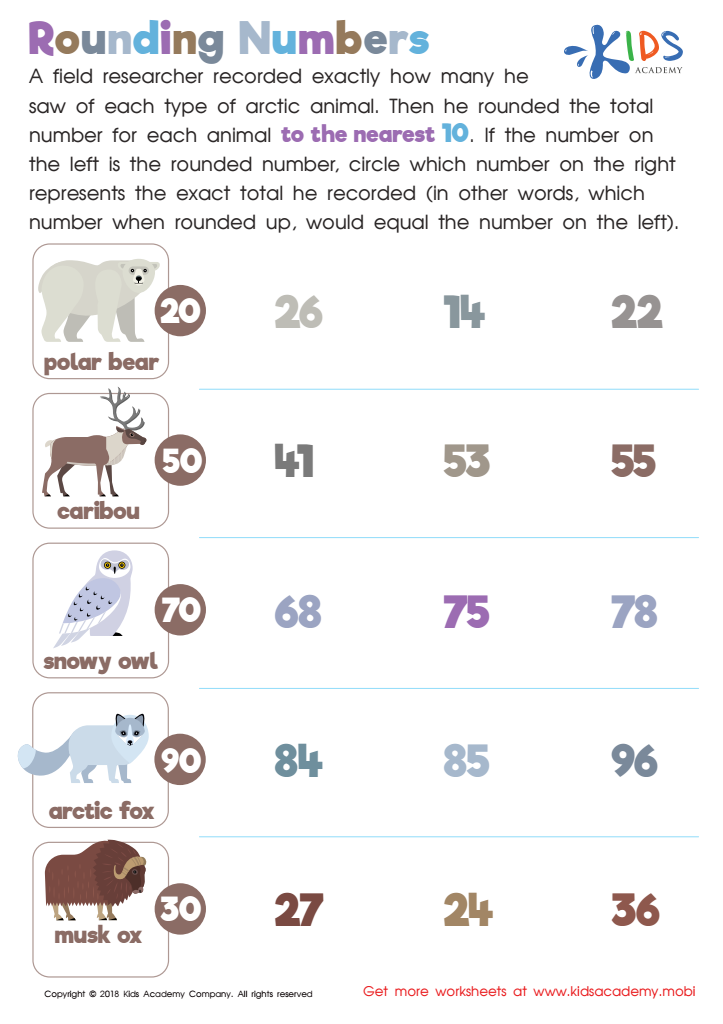

Rounding Numbers Worksheet
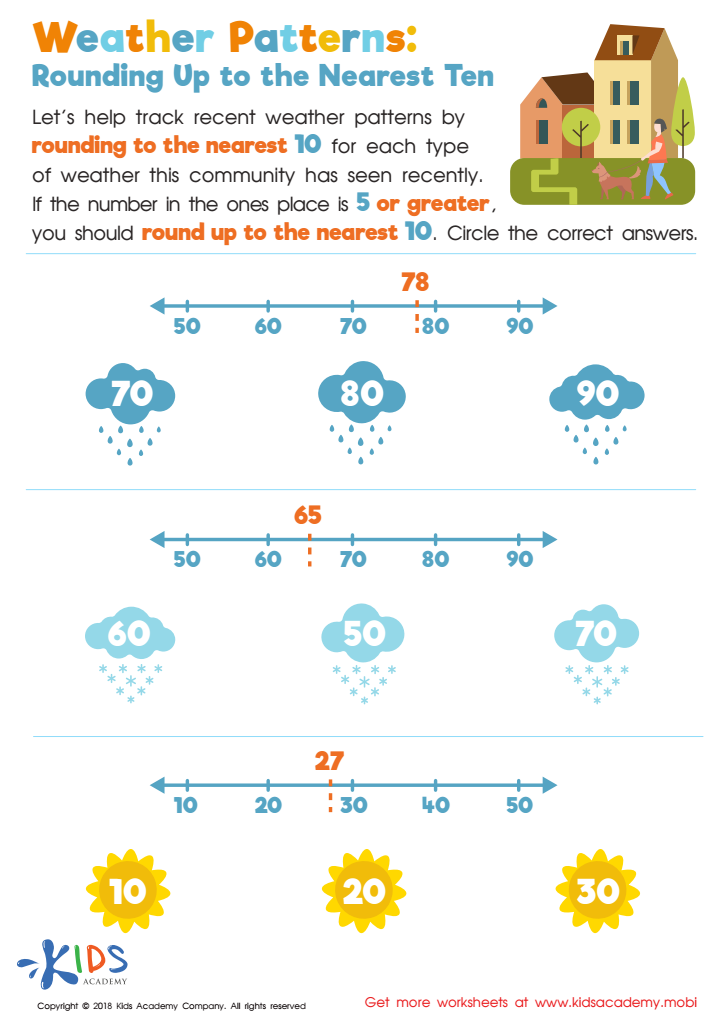

Weather Patterns Worksheet
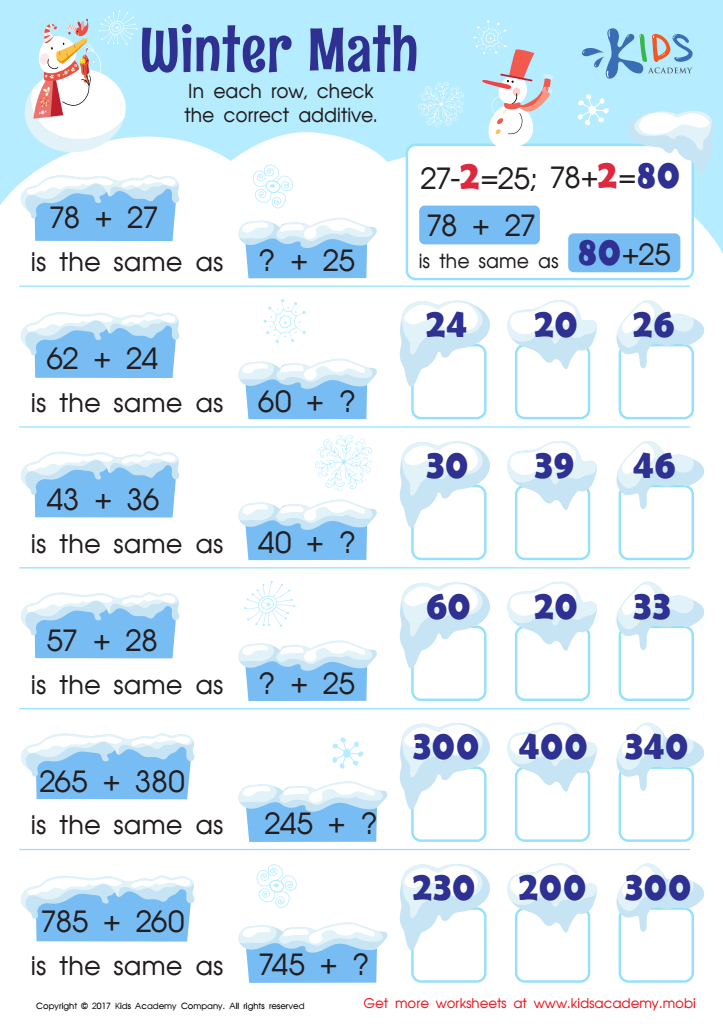

Free Addition Worksheet
Mathematical reasoning is crucial for children aged 5 to 8, as it lays the foundation for critical thinking and problem-solving skills. Fostering an understanding of normal numbers at this stage not only enhances mathematical proficiency but also nurtures a child’s ability to apply mathematical concepts in real-life situations. Normal numbers are encompassing whole numbers, fractions, or decimals that children encounter daily, from measuring ingredients in cooking to understanding time and money.
Parents and teachers should care about this early introduction because it helps children to reason logically and develop number sense, which is essential for future academic success. Engaging with normal numbers allows children to recognize patterns, make comparisons, and solve various problems. Moreover, strong mathematical reasoning skills contribute to higher confidence levels and a more positive attitude toward math when they encounter more complex concepts later.
Additionally, integrating these skills into everyday interactions helps children relate mathematics to their world, making learning more relevant and enjoyable. When parents and teachers prioritize developing mathematical reasoning during these formative years, they empower children to become competent, lifelong learners who can navigate a world increasingly driven by data and analytics.

 Assign to My Students
Assign to My Students




